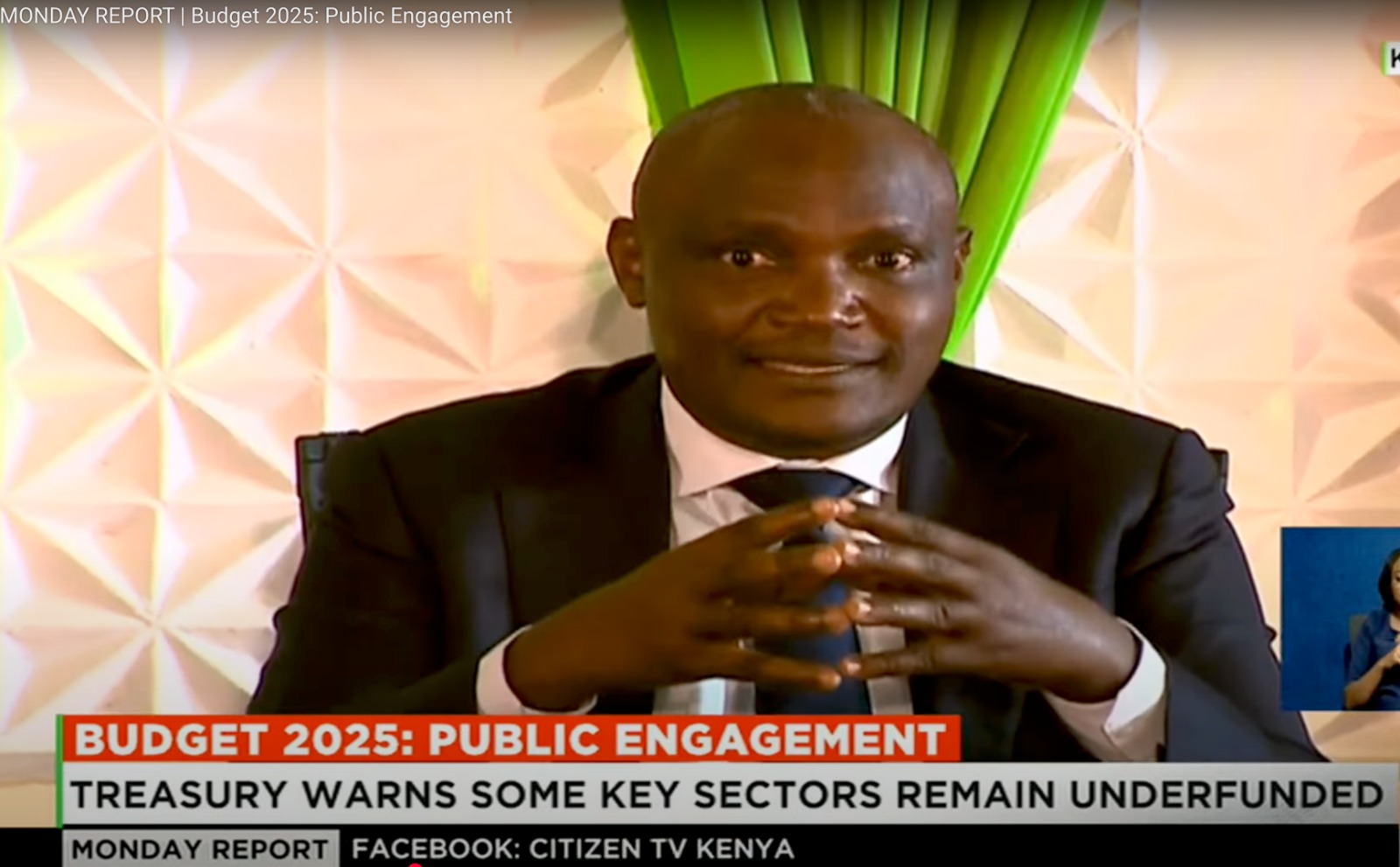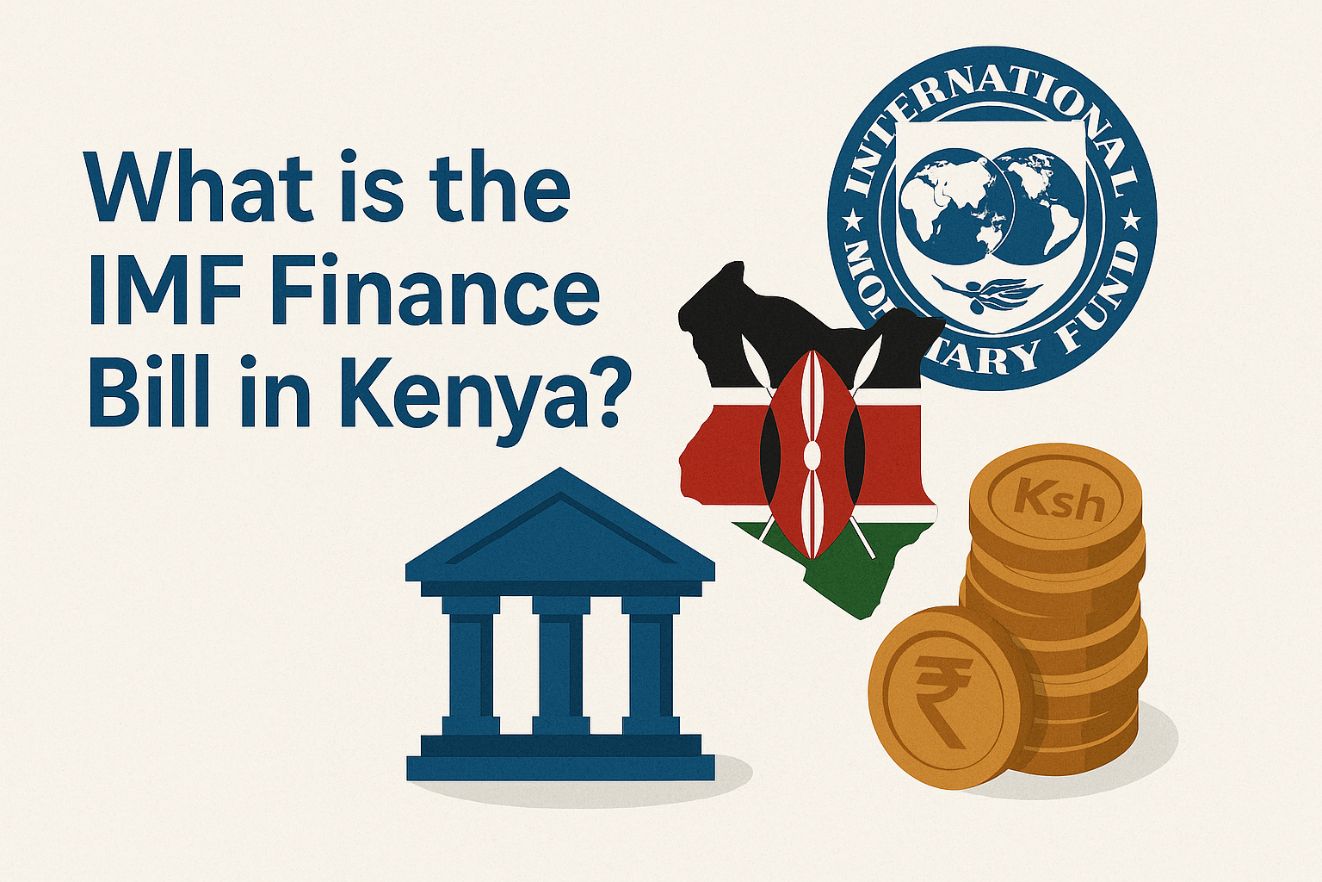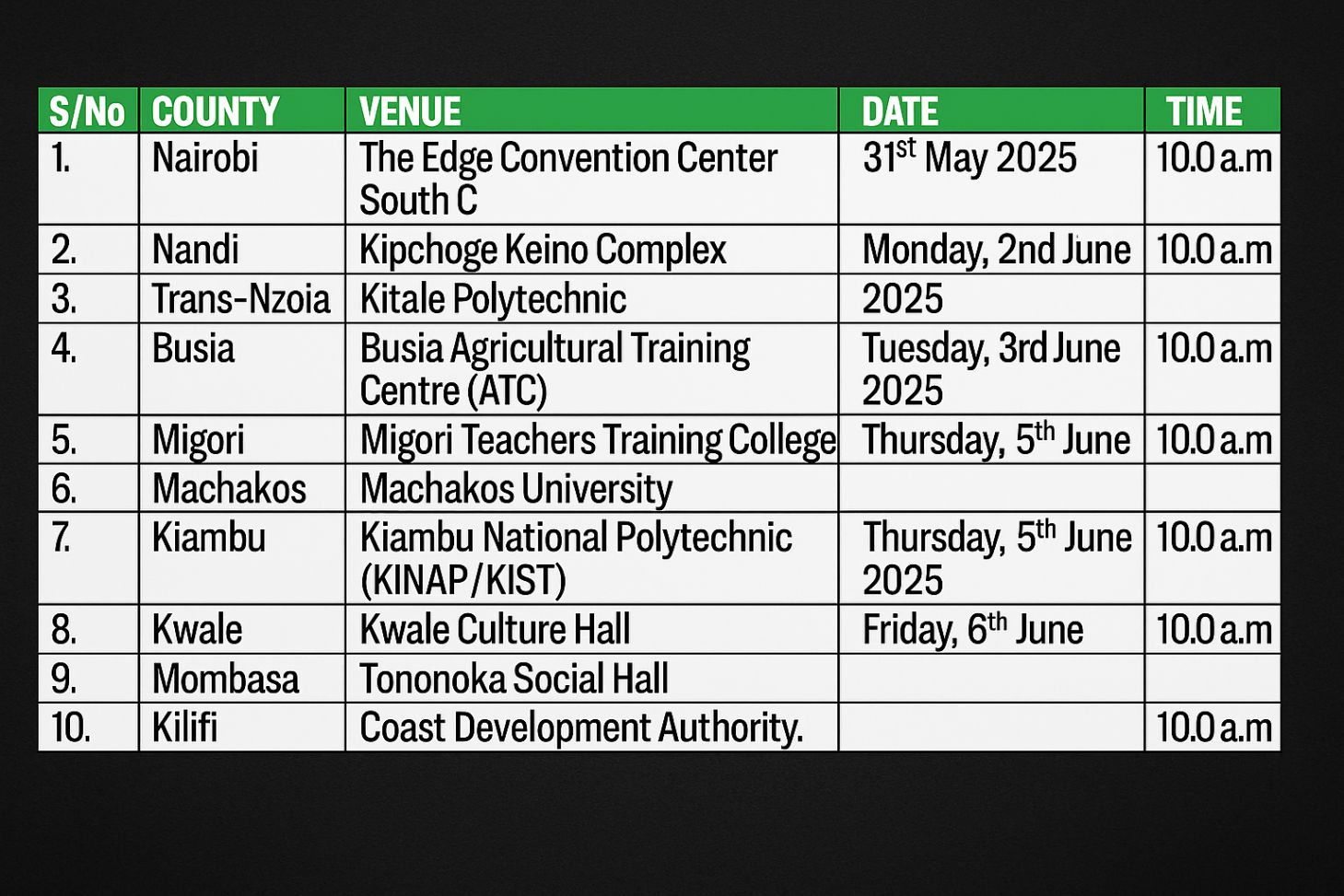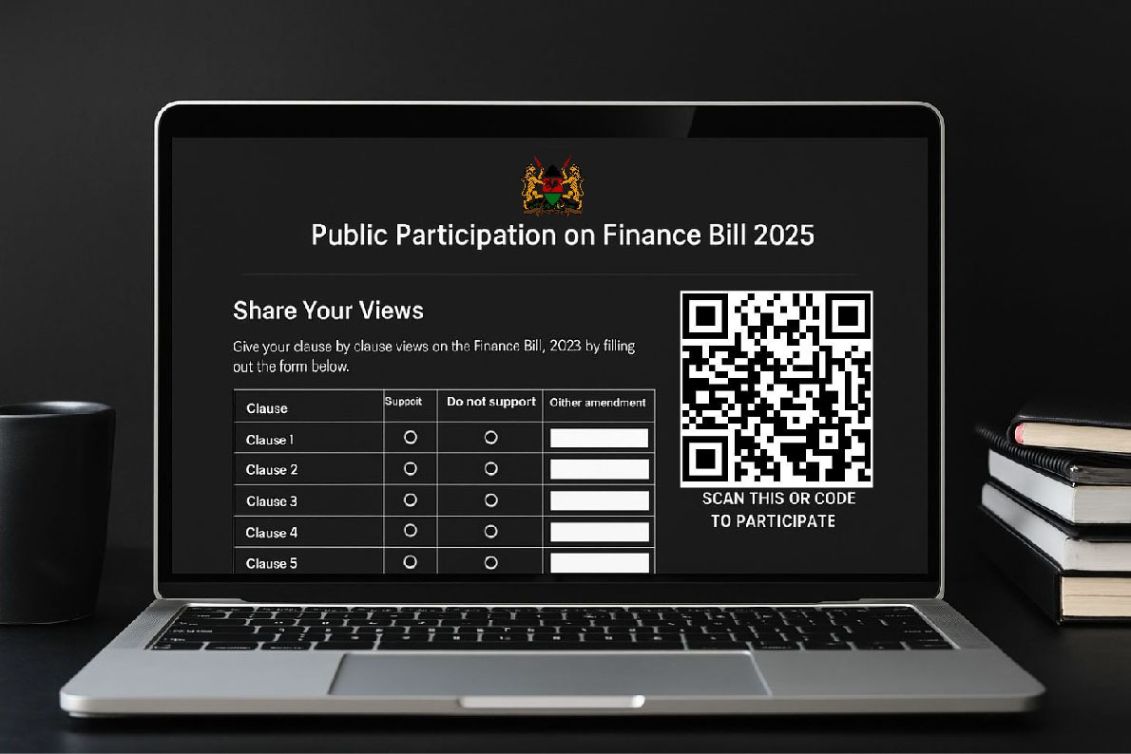In an interview aired on Citizen TV Monday Report, Cabinet Secretary for National Treasury Hon. John Mbadi unpacked the highly discussed Finance Bill 2025/2026. His calm and data-driven tone aimed to provide clarity amid widespread public anxiety and online speculation.
Responding to a question on whether Kenya is living beyond its means, CS Mbadi explained, “We have a projected budget of Ksh4.239 trillion. Of that, we plan to collect Ksh2.757 trillion in taxes, Ksh560 billion in ministerial appropriations-in-aid, and Ksh46 billion in grants.” This brings the total revenue to Ksh3.363 trillion, leaving a deficit of Ksh876 billion.
The CS emphasized that the borrowing strategy is not a long-term crutch but part of a phased deficit-reduction plan. Kenya’s fiscal deficit has gradually dropped from 8.3% of GDP in 2020 to a projected 4.5% in 2025/2026. The government also aims to reduce public debt from 72% of GDP in previous years to 55% in the medium term. “We’re not just borrowing recklessly,” CS Mbadi stated. “The strategy is to reduce the budget deficit progressively each year as a percentage of GDP.” This reflects a deliberate effort to strike a balance between service delivery, fiscal responsibility, and inclusive growth.
Contrary to misinformation circulating online, the Finance Bill 2025/2026 allocates more resources to sectors that impact every Kenyan, particularly health, education, and agriculture. The health sector receives Kh132 billion, up from Ksh123 billion in the previous year. This includes:
Ksh13.1 billion for primary health care.
Ksh10 billion for emergency, chronic, and critical illness care.
Over Ksh30 billion was allocated to Kenyatta National Hospital, Moi Teaching, and Referral Hospital, and Jaramogi Ogigna Odinga Teaching and Referral Hospital.
Universal Health Care, medical interns’ dues, and immunization programs are fully covered.
Education remains a major priority, with Ksh25 billion added to last year’s allocation. The budget will support:
Ksh54 billion for secondary capitation
Ksh30.9 billion for Junior Secondary School
Ksh7.9 billion for Free Primary Education
Recruitment of 20,000 intern teachers
Higher Education Loans Board funding increase from Ksh35 billion to Ksh41 billion
The agricultural sector, which is critical for food security and rural livelihoods, receives Ksh44 billion Ksh3 billion more than the previous year. “The strength of any society lies in how it treats its most vulnerable,” Mbadi noted, affirming the government’s commitment to equity and human dignity.
The Finance Bill increases allocations for the elderly, orphans, and persons with disabilities. Cash transfer programs now stand at:
Ksh25.6 billion for the elderly, up from Ksh18.6 billion.
Ksh8.9 billion for orphans and vulnerable children up from Ksh7.9 billion.
Ksh1.5 billion for people with severe disabilities up from Ksh1.2 billion.
“These are not just numbers; they are lives being supported. We are ensuring no one is left behind,” Mbadi stated.
CS Mbadi also addressed concerns that the Finance Bill was being misunderstood or deliberately misrepresented by some online commentators. He reiterated the need for civic literacy and truthful dialogue. “It’s unfortunate that propaganda thrives. But as Treasury, our role is to speak plainly and show what the numbers mean for ordinary Kenyans.”
In his view, the Finance Bill 2025/2026 is a necessary tool to support national services and reduce debt dependency without breaking the backs of the poor. With increased allocations to essential sectors and a responsible borrowing plan, it reflects a government intent on balancing growth with prudence. As CS Mbadi concluded, the focus now shifts to meaningful public engagement. Parliament is collecting feedback from the public, and every Kenyan has a voice in shaping this national policy.




